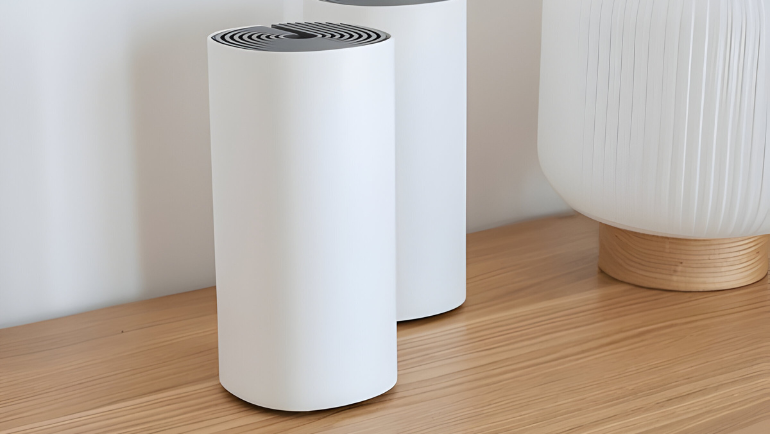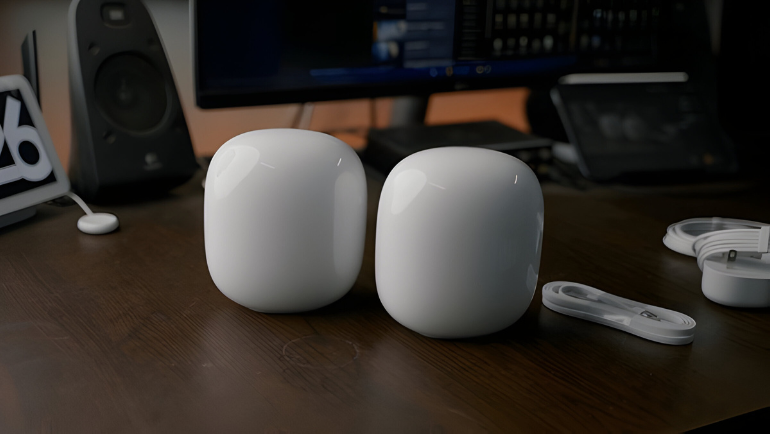
- Ethernet Ports
- Wi-Fi Speed
- Wi-Fi Coverage
- Setup and Controls
- Scalability
- Price
- Pros and Cons
- Which One Should You Choose?
- Expected Future
In today’s world of wireless connectivity, a reliable internet connection is important for enterprises and businesses. Traditional routers have been in the market for a long time. However, mesh routers have been introduced in recent times and gained a lot of popularity among enterprises. Users are ambiguous about router vs mesh and there is a huge debate on Wi-Fi mesh vs routers due to the increase in IoT(Internet of Things) devices. Let’s deep dive into mesh router vs. router and find out which is the real deal for your business.
Difference Between Mesh Wi-Fi Network and Router
Everyone seeks a networking device that ensures a stable internet connection. To meet this need, businesses are increasingly choosing between wireless routers and mesh Wi-Fi systems. So, let’s see mesh and router differences and which one is a better deal.
Mesh Wi-Fi vs. Router: Ethernet Ports
Wired connections are always faster and more stable than conventional wireless internet connections (Wi-Fi). Therefore, resource-intensive users prefer running an ethernet cable to the router to ensure seamless operations. Traditional routers are better at supporting ethernet-wired connections due to having multiple ethernet support. Even the most basic Wi-Fi routers can connect multiple devices such as a NAS or SAN.
Mesh routers usually don’t offer many ethernet ports, mesh Wifi comes with two ethernet ports, one for connecting the modem and the other for creating an ethernet backhaul. You can also increase the number of ethernet ports by installing an ethernet switch but it requires an additional cost.
Mesh Wi-Fi vs. Router: Wi-Fi Speed
When it comes to mesh vs router speed, a mesh network and router have their benefits. Traditional routers can deliver high-speed connections especially when you pair it with the latest Wi-Fi standards like Wi-Fi 6 or Wi-Fi 6E. However, the traditional router performance degrades significantly as the signal strength decreases, leading to slower internet and dead zones in multi-story offices.
Mesh routers are designed to provide a consistent speed across the entire area. It creates a unified network once you place the node at the optimal position. Moreover, a mesh network helps eliminate dead zones that can occur with traditional routers over larger distances.
Mesh Router vs. Router: Wi-Fi Coverage
Mesh Wi-Fi Network relies on multiple nodes and is a good option for multiple-story workplaces. The coverage works like a series of dots all interconnected to one another and exchange data to their neighbor node that is directly connected to the main mesh router. This ecosystem allows extensive coverage, effectively eliminating dead zones and maintaining high signal strength.
Traditional routers are typically single devices that broadcast Wi-Fi signals from a central location. A high-quality router can deliver strong internet connectivity, but its signals often struggle to penetrate walls and doors, leading to slower speeds and dead zones.
Mesh Router vs. Router: Setup and Controls

Traditional router on the desk
When it comes to mesh system vs router setup configuration, mesh network setup is easy with a streamlined mobile app. It guides users step-by-step process, from connecting the main node to placing additional nodes. These apps often provide intuitive controls and features like guest networks, parental controls, and device prioritization.
Most traditional routers come with a browser-based admin panel, which makes setup and troubleshooting a router less user-friendly. Most of the features and functionalities have different tabs and sections which are less user-friendly to navigate. If ease of management is your concern then opting for a mesh will be a sound option.
Mesh Network vs Traditional Router: Scalability
The mesh network is better at scalability, you can add or remove as many nodes as you want. Once your user base increases, you can increase nodes to cater the needs. Whereas, traditional routers are limited and lack scalability. If you find bad Wi-Fi coverage then consider adding a Wi-Fi extender or repeater. These devices can enhance connectivity and fill coverage gaps but at an additional cost.
Mesh router vs. Router: Price
When it comes to price, the mesh router is more expensive than a traditional router due to the features it offers. A base-level mesh router with three nodes ranges from $130 to $350, depending on the model, wifi generation, and Brands. Whereas, a traditional router can range from $50 to $200, depending on the model, features, and capabilities. Computing Worlds has a variety of new, used, and refurbished Wi-Fi routers and mesh networks that you can buy for your workplace.
Traditional Routers
- F9K1001 Belkin Wireless Router
- AER1650LP4 CradlePoint Wireless Router
- XR500-100EUS Netgear Nighthawk Wireless Router
Mesh Wi-Fi Router
You can also request a bulk quote online for the top Mesh Wi-Fi routers and Traditional routers.
Mesh vs. Router: Pros and Cons
Following are the Pros and cons of mesh router vs router.
| Pros | Cons | |
| Traditional Wi-Fi Router | Lower initial cost | dead zones and weaker signals in larger areas |
| Effective for smaller places | Limited scalability | |
| Extensive configuration options for advanced users | Setup and management can be complex for non-technical users | |
| Mesh Wi-Fi Network | Simplified, user-friendly controls | Requires multiple nodes, increasing the initial cost |
| Consistent performance throughout the coverage area | Complex setup | |
| Scalability | Potential for interference between nodes |
Mesh Router vs. Router: Which One Should You Choose?

Mesh Wi-Fi system
A mesh network is an ideal choice for large offices and multi-store buildings to cater to the need for seamless connectivity. However, it can be expensive and budget-intensive for SMBs (Small and Medium Businesses). Whereas, opting for a traditional router is more affordable but at the sacrifice of features that Mesh Wi-Fi systems offer like better coverage and reliable speed. Before installing any of these networking devices, understand the requirements and coverage area to make a better decision.
Mesh vs. Router: Expected Future
The future of mesh Wi-Fi and traditional routers have different trajectories. Mesh Wi-Fi systems are expected to gain popularity due to their scalability, providing consistent performance across large areas. On the other hand, traditional routers will remain a cost-effective choice for smaller spaces and budgets. Technological advancements will continue to boost their performance and range, making them suitable for users with simpler networking needs. We can also expect Wi-Fi 7 routers and Mesh Wi-Fi systems that can offer better speed and coverage area. On top, brands can integrate AI and machine learning in the networking systems that can troubleshoot the issue beforehand and Optimize the network for every user.
Frequently Ask Questions
Is Mesh Wi-Fi Better Than An Extender?
Yes, a mesh network is better than a Wi-Fi extender. You can also explore how an extender can compete with Mesh Wi-Fi Network.
Can I Add My Router to a Mesh Network System?
Yes, you can add a router into a mesh system after converting your router into a Wi-Fi extender. Mesh or routers both offer unique advantages that cater to different needs. Mesh Wi-Fi systems are poised to become the preferred choice for users seeking scalable, seamless connections. Traditional routers will continue to be a cost-effective solution for smaller spaces and simpler networking requirements.
Overall, traditional routers will maintain their relevance, and mesh Wi-Fi systems are set to lead the networking pathway with comprehensive and effortless connectivity. This ends the debate of mesh router vs router and for more information about wireless routers and mesh systems Stay connected to the Computing Worlds blog.






